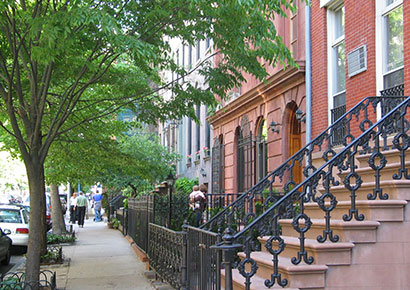New York woman becomes 10th US transgender murder victim this year

Chelsea in Manhattan
The onslaught against transgender women, particularly those of colour, continues in the US with the killing of Brenda Bostick in New York City.
Bostick, a 59-year-old black transgender woman, died last week Thursday from injuries sustained in an attack on April 25th in the Chelsea neighbourhood of Manhattan.
According to media reports, the homeless woman was found unconscious with severe head trauma and was taken to hospital, where she later died of her injuries. Her death has been confirmed to be a homicide.
Bostick is the tenth transgender woman to be killed so far this year in the US; nine were black and one was Native American.
While not all cases are necessarily directly related to anti-trans hate, activists have pointed out that a victim’s transgender status often puts them in extremely vulnerable socio-economic situations, including homelessness.
Beverly Tillery, Executive Director at the New York City Anti-Violence Project, described the situation as “a crisis of violence”.
“As a society we can stop this epidemic by hiring trans women of colour, making sure they have safe places to live and standing up when we see or hear them being demeaned and attacked and simply by valuing their lives,” said Tillery. “The moment to act is now.”
According to the New York Daily News, police have arrested a homeless man “with a lengthy criminal past” as the prime suspect in Bostick’s beating.
In 2016, 27 transgender people were fatally shot, stabbed, or killed by other violent means in the US, and nearly all of the victims were women of colour.
According to a November 2016 report by the HRC, in many instances the violence “is fuelled by a deadly combination of anti-LGBTQ animus, racism, easy access to guns and increasingly hateful social and political rhetoric”.
The LGBTQ media lobby group GLAAD called on the media to do a better job of reporting these murders.
“In order for people to be aware of the horrific violence affecting the community, the public needs to know it is happening,” said GLAAD. “The media has a responsibility to communicate about the deadly realities faced by transgender people.”
Leave a Reply